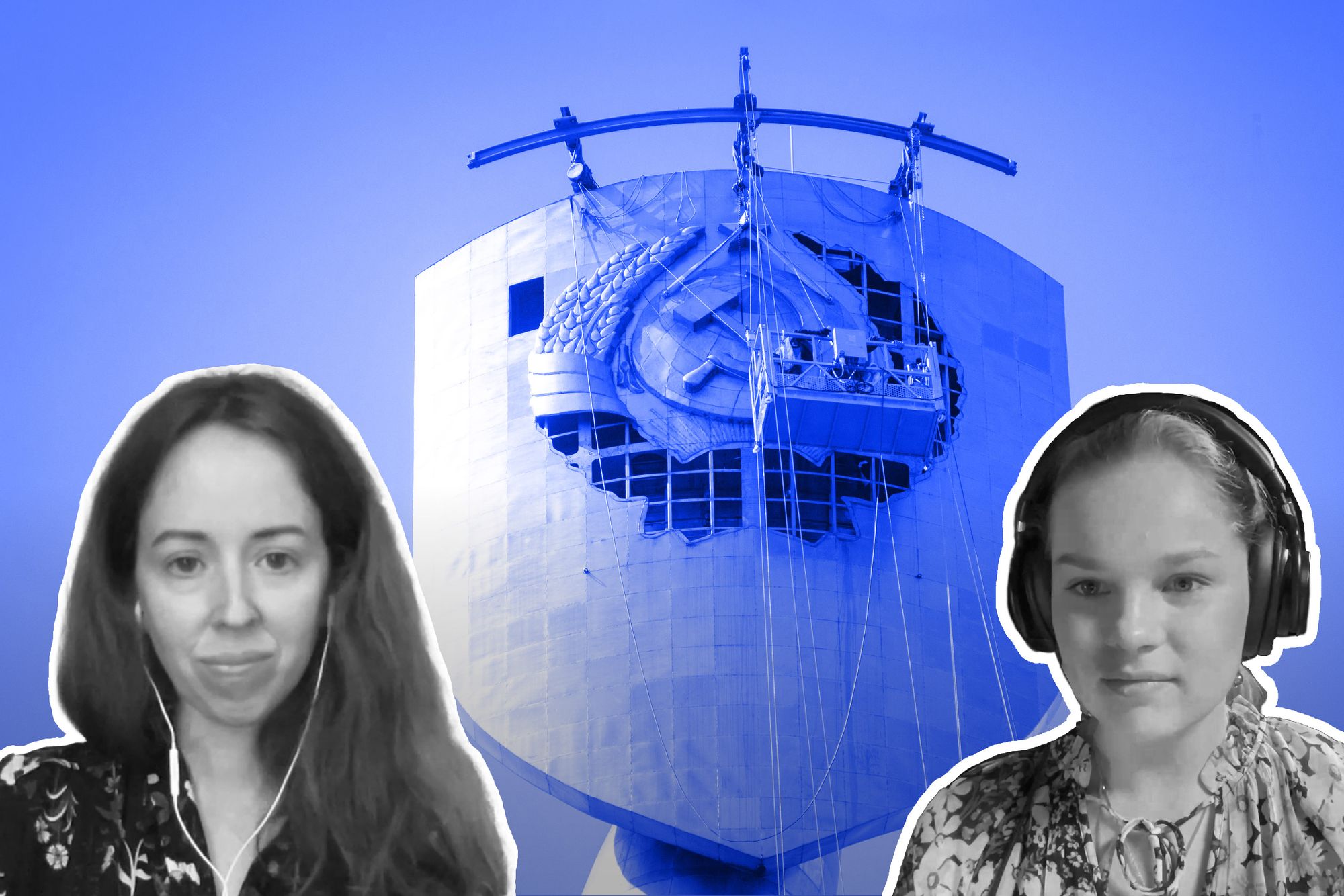Ukrainian activists hang colorful net over Pushkin statue in Kyiv park in protest of Russian symbols

Local activists in Kyiv hung a brightly-colored camouflage net over a centrally located statue of famed Russian writer Alexander Pushkin as a protest of the continued Russian cultural imperialism in Ukraine, Ukrainska Pravda said on Oct. 24, citing the activists' Telegram post.
The "mask" was intended to "remind the society and the authorities that the symbols of Russian imperialism still stand quietly in our cities and the process of de-Russification should take place more actively," said the group, named "Solomianski Cats."
The group also called on others to participate in drawing attention to the numerous remaining Russian and Soviet sculptures by placing their own 'masks' and sharing them on social media.
Since Russia launched its full-scale invasion of Ukraine on Feb. 24, Ukraine has continued an ongoing process of “de-Russification” that gained momentum after the Euromaidan Revolution in 2014. As part of these efforts, monuments to Russian historical figures have been dismantled, and streets named after Russians or Soviet history have been renamed.
President Volodymyr Zelensky signed a law in April 2023 that prohibits naming geographic sites in Ukraine after Russian figures or historical events associated with Russian aggression.
Titled “On Geographical Names,” the law aims to address the “decolonization of toponymy” and to regulate the use of place names in Ukraine, according to the text of the law.
The law prohibits naming geographical sites with titles that “glorify, perpetuate, promote, or symbolize” Russia or its “prominent, memorable, historical and cultural places, cities, dates, events, and figures who carried out military aggression against Ukraine and other sovereign countries.”
It also bans geographic markers associated with “state totalitarian policies and practices related to the persecution of opposition figures, dissidents and other persons” who criticized “totalitarian Soviet and totalitarian Russian regimes.”
Last spring, monuments to Pushkin were dismantled in cities like Ukraine’s southern port city of Mykolaiv, Ukraine’s western city of Ternopil, and in the western Zakarpattia Oblast.

In August, the Soviet coat of arms (hammer and sickle) was removed from Kyiv's Motherland Monument, Ukraine's tallest statue and a fixture of the city's skyline. It was replaced with Ukraine's coat of arms, the trident.
In a survey conducted after the beginning of Russia's full-scale invasion of Ukraine, 85% of respondents supported the idea of replacing the Soviet emblem on the Motherland statue's shield with the trident.













